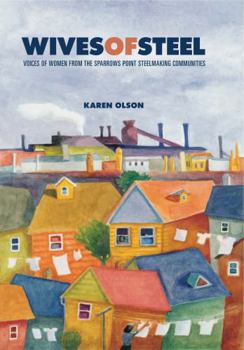Wives of Steel: Voices of Women from the Sparrows Point Steelmaking Communities
Select Format
Select Condition 
Book Overview
During its heyday in the 1950s and 1960s, the Bethlehem Steel mill at Sparrows Point near Baltimore was one of the world's largest steel plants, employing as many as 30,000 workers. But these glory years were short-lived, as the American steel industry soon collapsed, taking with it the high-income industrial jobs that many Sparrows Point workers had come to enjoy. This familiar tale of decline in America's industrial heartland is only part of the story, however. In response to downsizing and job loss at Sparrows Point, many women entered the workforce to fulfill the needs of their families living in the adjacent communities of Turners Station and Dundalk. Wives of Steel tells the story of these women who broke traditional gender roles and, in the process, contributed to the economic survival of their communities.
Wives of Steel is based on more than eighty formal interviews conducted over a fifteen-year period with women and some men, both white and black, all of whom were part of Sparrows Point as workers, spouses, or longtime residents of the local communities. Through the stories they tell, we see how a male-dominated industry has influenced personal, family, and social experiences over several generations. We also see the distinct differences and surprising similarities between the lives of black and white women, which often reflect the complicated relationships among black and white steelworkers in the plant.
Deindustrialization has transformed many of America's cities and communities, often in devastating ways. For women in particular, the changes in family and work life have been far more complex and in many ways more positive in their consequences than many studies have led us to expect. Combining consummate research with vivid firsthand accounts, Wives of Steel tells a story that continues to be played out in communities across America as working-class families are forced to cope with a globalizing economy.





